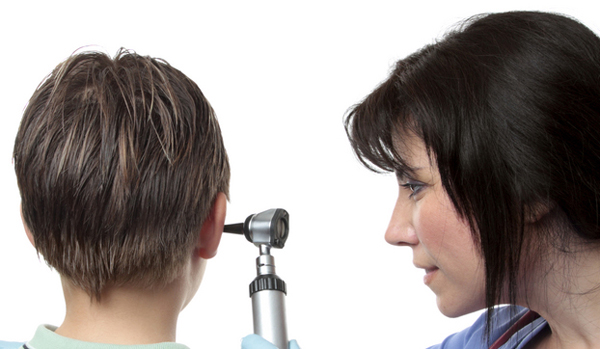What are invisible-in-canal (IIC) hearing aids?
If you’ve been told by your audiologist that you may need a hearing aid,

By: admin | August 18, 2020
Deciding to take your child to the audiologist is a step in the right direction. Even if you aren’t entirely sure, getting them seen by an audiologist can ensure your worries are put to bed, and if there is a problem, its best to see it addressed at the earliest opportunity. It’s natural to have questions about these kinds of things and hopefully this article can answer them.
The truth is they might not be able to come to you and tell you they have a problem. They don’t know any different. If they’re a little older they might, but if you have a baby or a young child, this is going to be something you identify yourself. If you think your child or baby is experiencing a form of hearing loss, take steps early on to help them hear better. The best help you can get is by taking them to see an audiologist. They’re hearing specialists who have been trained to help people who have hearing loss, and who can also help your children if they aren’t able to hear properly. Sometimes the problems are a little simpler in scope. Such as a blockage of wax which can be removed using a variety of different methods. Other times, the loss of hearing can be a little more complex. The ear, nose and throat are all interconnected and immensely complex. Rest assured, if there is a complex problem, an audiologist is one of the best people you can take your child to see. Remember, children are still growing. Meaning things are changing at a rapid pace. It may take a few sessions with your audiologist to see what’s wrong, and perhaps they may want to see how things change overtime.
It’s completely natural to be nervous. Especially if they’re young. The key to remember is that the sessions won’t hurt. It might be a little uncomfortable when there’s some poking around in your ear. The audiologist will know people get nervous, especially children. A key tool for most audiologists is the otoscope. You’ve probably had experience with one before. Doctors will often use them during a general check up, or if you have a fever to check for an infection. It’s essentially a tool for the audiologist to look deep into your ear. To do this effectively they may have to pull your child’s ear a little, or turn them in a couple of different directions. Depending on how the initial examination goes, the next step might be for the audiologist to test the eardrum. The test is usually called a tympanometry test, which looks at how your eardrum moves. The movement, or vibration of the eardrum is how you hear, so it’s vital that this function works. You or your child might have some fluid behind or around the ear which can be painful. The test is fairly simple. The audiologist will insert a small plug into your ear. It shouldn’t hurt though. The plug will sense how your eardrums move and if they move in a healthy way. If the eardrum didn’t vibrate properly then your audiologist will begin to understand what the problem is with your hearing. If there is an infection present you may need medication like antibiotics or even a referral to a doctor. Or, you may need some extra tests to further investigate your ear.
Your audiologist might need or want to do further hearing tests. The tests are probably what you’d expect and test how good your hearing is in each ear. The tests differ, but one of the most popular is wearing headphones. You’ll then be played different sounds or noises at different frequencies. You might be left in the room alone to do this test so there are no distractions. If you have young children, you might stay with them while they do it but only if necessary. Again, the test length differs. Each time they play a noise, you’ll put a counter into a jar, raise your hand, or press a button. They all follow the same routine. The result of your hearing test will dictate what kind of treatment you need. In some cases, you or your children may be offered a hearing aid. There are different styles to choose from such as in the ear (ITE), behind the ear (BTE) and in the canal (ITC). In other cases, it might just be a case of monitoring the hearing with more tests. You can get more information about the The Hearing and Tinnitus Center by calling 303-534-0163.

If you’ve been told by your audiologist that you may need a hearing aid,
By: admin | September 21, 2020
